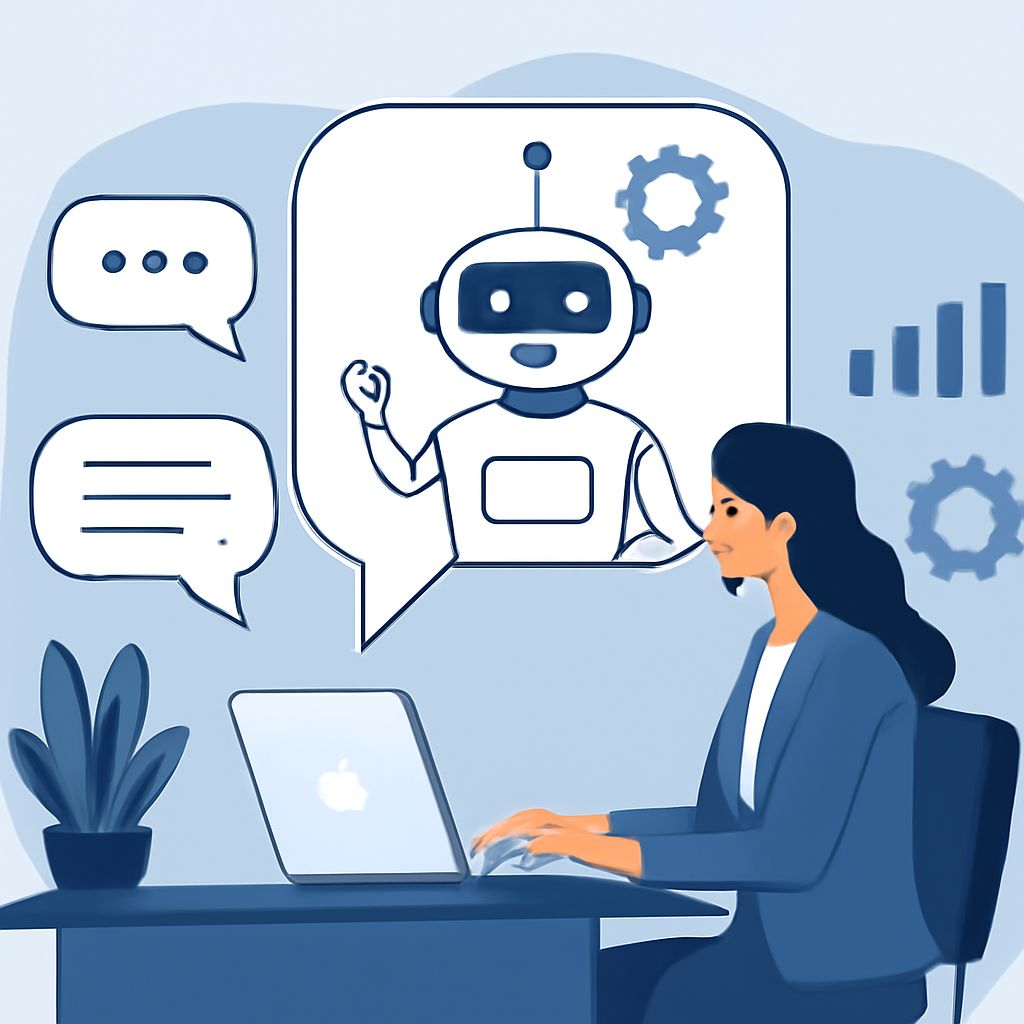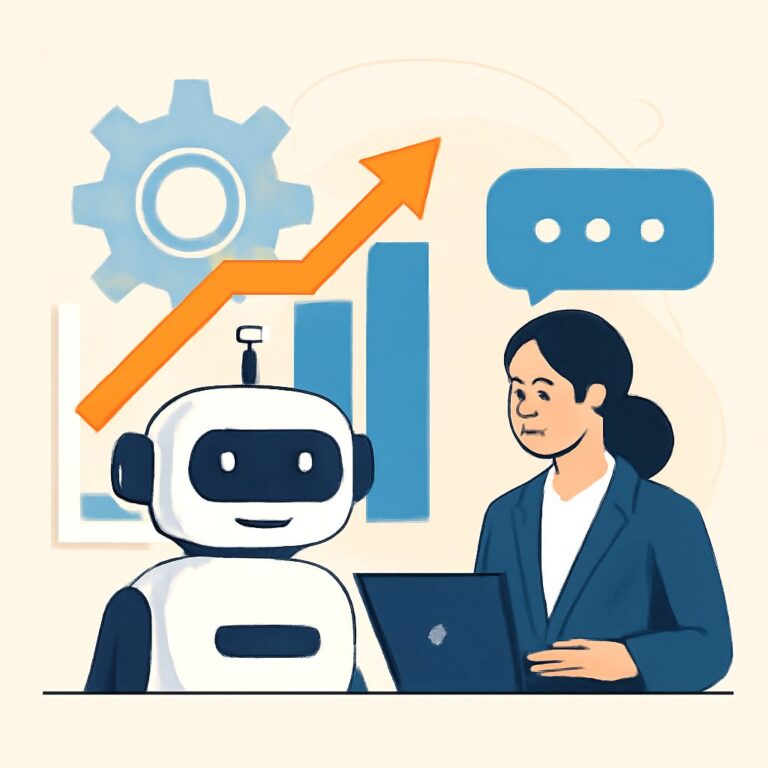Table of Contents
Unlocking the Potential of Chatbot Automation for Businesses
In an era where digital transformation is reshaping the business landscape, chatbot automation has emerged as a powerful tool, unlocking new horizons of efficiency and customer engagement. Businesses are constantly seeking innovative ways to streamline operations, enhance customer experience, and ultimately, boost their bottom line. Chatbots, powered by artificial intelligence, have proved to be instrumental in achieving these goals. This article delves into the myriad ways in which chatbot automation can revolutionize businesses, across industries and scales.
Chatbot automation is transforming the way businesses interact with customers, providing efficient and personalized service around the clock. By integrating chatbots, companies can streamline operations, reduce costs, and enhance customer satisfaction. Explore how adopting this technology can unlock new potential for your business with resources like bag mockup templates that help visualize your brand’s communication strategy.
The Rise of Chatbots in Business
Over the past few years, chatbots have evolved from simple rule-based systems to complex AI-driven applications capable of understanding and interacting with users in a more human-like manner. According to a survey by Business Insider, 80% of businesses are expected to integrate some form of chatbot system by 2025, underscoring the growing importance of this technology.
| Year | Percentage of Businesses Using Chatbots |
|---|---|
| 2020 | 30% |
| 2022 | 50% |
| 2025 (Projected) | 80% |
The rise of chatbots can be attributed to several factors, including advancements in natural language processing (NLP), the proliferation of messaging apps, and increasing consumer expectations for rapid, personalized interactions.
Benefits of Chatbot Automation
Chatbot automation can bring a myriad of benefits to businesses. Let’s explore some key advantages:
- 24/7 Availability: Unlike human agents, chatbots do not require sleep or breaks, allowing businesses to provide round-the-clock customer service. This continuous availability can be particularly advantageous for global companies with customers in different time zones.
- Cost Efficiency: Chatbots automate routine queries and tasks, reducing the need for a large customer service team. This leads to significant cost savings while maintaining, or even improving, service levels.
- Enhanced Customer Experience: By handling simple queries and directing complex ones to human agents, chatbots streamline the user experience, ensuring quick resolution of issues and enhancing overall satisfaction.
- Scalability: Chatbots can handle thousands of interactions simultaneously, ensuring consistent service delivery during peak periods or growth phases.
- Data Collection and Analysis: Chatbots can collect vast amounts of data from customer interactions, providing businesses with insights that can be used to refine products, services, and marketing strategies.
Applications Across Industries
The versatility of chatbots makes them applicable across a wide range of industries:
- Retail: In retail, chatbots assist with personalized shopping experiences, handling customer queries, recommending products, and processing orders seamlessly.
- Healthcare: Chatbots are employed for booking appointments, disseminating health information, and even symptom-checking, thus enhancing patient engagement and streamlining administrative processes.
- Finance: In the finance sector, chatbots handle customer queries, assist in transactions, and offer personalized financial advice, enhancing customer satisfaction and operational efficiency.
- Travel: Travel companies use chatbots for booking management, itinerary updates, and providing destination information, significantly enhancing the traveler’s experience.
Challenges and Considerations
Despite their advantages, businesses must navigate several challenges when implementing chatbot automation:
- Integration Complexity: Integrating chatbots with existing systems can be complex and time-consuming, requiring substantial IT resources.
- Privacy Concerns: Handling sensitive customer data requires robust security measures to prevent breaches and ensure compliance with regulatory standards.
- User Acceptance: While younger demographics may readily embrace chatbot interactions, older generations might prefer human interaction, necessitating a careful balance.
The Future of Chatbot Automation
As AI continues to evolve, the capabilities of chatbots are expected to expand even further. Future advancements may include more sophisticated natural language understanding, emotion recognition, and improved contextual awareness. Additionally, the growing integration of chatbots with IoT devices could open up new avenues for seamless human-computer interactions.
In conclusion, chatbot automation represents a significant opportunity for businesses to enhance their operations, engage customers more effectively, and stay competitive in an increasingly digital world. By understanding the potential and limitations of this technology, businesses can strategically implement chatbots to achieve their organizational goals.
FAQ
What is chatbot automation?
Chatbot automation refers to the use of artificial intelligence and machine learning technologies to create chatbots that can handle customer interactions without human intervention, streamlining communication and improving efficiency for businesses.
How can chatbot automation benefit my business?
Chatbot automation can enhance customer service by providing instant responses, reduce operational costs by minimizing the need for live agents, and improve customer engagement by offering personalized interactions.
What industries can benefit from chatbot automation?
Industries such as e-commerce, healthcare, finance, hospitality, and customer service can greatly benefit from chatbot automation by improving response times and customer satisfaction.
How does chatbot automation improve customer experience?
Chatbot automation improves customer experience by offering 24/7 support, providing quick and accurate responses, and personalizing interactions based on customer data and preferences.
Are there any challenges in implementing chatbot automation?
Challenges include ensuring natural language understanding, integrating with existing systems, maintaining data privacy, and continuously updating the chatbot to handle new queries effectively.
What should I consider when choosing a chatbot platform?
Consider the platform’s ease of use, integration capabilities, scalability, support for multiple languages, and the ability to handle complex queries when choosing a chatbot platform for your business.









